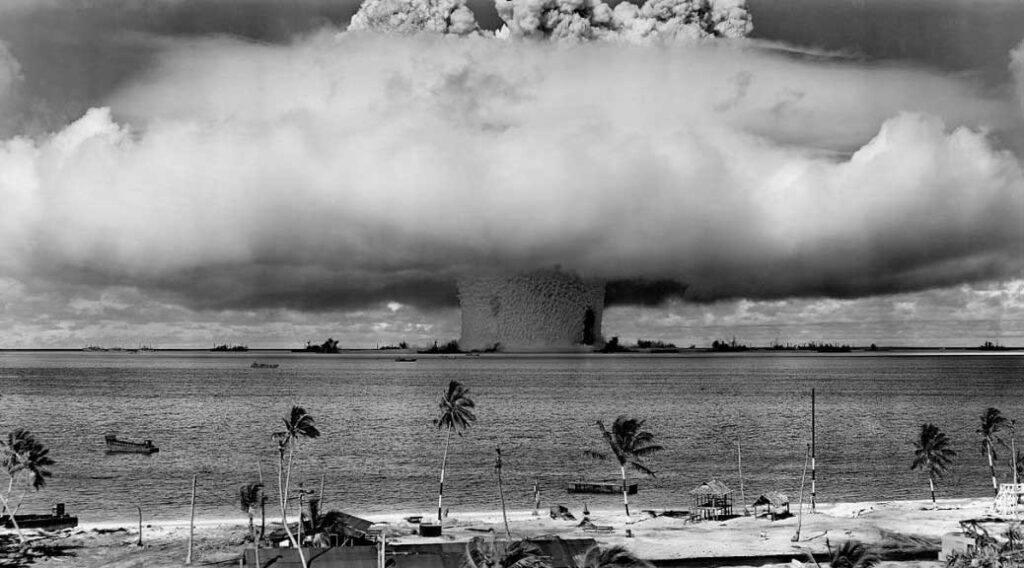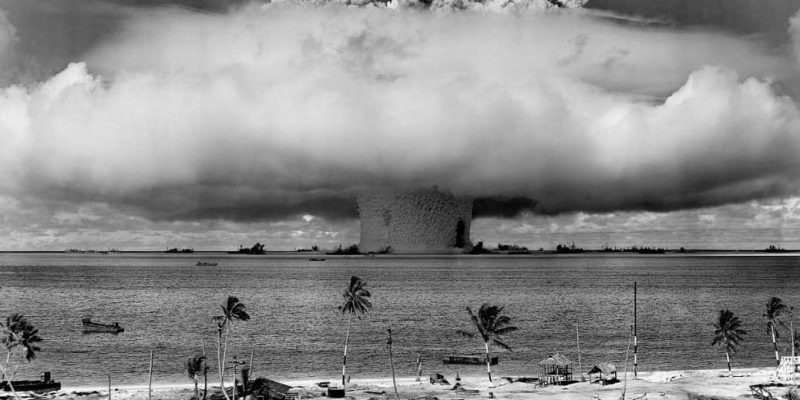
March this year saw two significant events in the history of nuclear energy and disarmament. One, the 2016 Nuclear Industry Summit (NIS 2016), was an industry conference on nuclear security, which took place in Washington, D.C. between Wednesday, March 30 and Thursday, March 31.
March also saw the Marshall Islands’ begin their landmark case against three nuclear powers: the UK, India, and Pakistan, in the International Court of Justice in the Hague. Oral proceedings in the three separate cases were held between 7 – 16 March, 2016. The case is significant not only because it is a courageous move from a country that has been subject to nuclear weapons testing, but also because it proposes to broaden the scope of the Nuclear Non-Proliferation Treaty.
In April 2014, the Republic of the Marshall Islands initiated proceedings in the International Court of Justice (ICJ) against all nine nuclear-armed nations, the United States, Russia, the United Kingdom, France, China, India, Israel, Pakistan and North Korea. The Marshall Islands contend that each nation is in breach of its obligations under the Nuclear Non-Proliferation Treaty (NPT), but further that the NPT amounts to a customary international law. Meaning non party states are still required to work towards ending the nuclear arms race and engage in negotiations on nuclear disarmament.
Only three of the nine: the UK, India and Pakistan, accept the compulsory jurisdiction of the Court. The other six declined the Marshall Islands’s invitation to defend their records on nuclear disarmament.
The United States alone conducted 67 nuclear explosive tests in the Marshall Islands between 1946 and 1958. The US hydrogen bomb test at Bikini Atoll in 1954 was a thousand times more powerful than the atomic bomb dropped on Hiroshima. It exposed thousands in the surrounding area to radioactive fallout.
During the hearings in the Hague, both the UK and India stated that they have a strong record of support for nuclear disarmament, making the action against them unnecessary. In reply the Marshall Islands cited the UK’s consistent record of voting against nuclear disarmament resolutions in the UN General Assembly and its plans to replace its Trident nuclear weapons system. The Marshall Islands also pointed to moves by India and Pakistan to expand, improve and diversify their arsenals of nuclear weapons.
Tony deBrum, the Marshall Islands foreign minister, gave a first hand account of his childhood experiences during US nuclear testing. “The entire sky turned blood red,” he said, adding that islands were “vaporized” by nuclear weapons testing. “Our people have suffered the catastrophic and irreparable damage of these weapons and we vow to fight so that no one else on earth will ever again experience these atrocities.”
There will now be a period of waiting, probably between three and six months, as the ICJ determines whether it has jurisdiction in this case. If the answer is yes, then it will issue a separate ruling for each of the three countries represented. If the verdict is in favour of the Marshall Islands, then the case will continue. If the verdict is against the Marshall Islands then a brave attempt to compel nuclear powers to take responsibility for their actions, the damage they have caused and the lives they have affected, will be over.
SafeGround takes the position that we have to support a comprehensive ban on nuclear weapons, in the interests of all humanity. We must support civilians affected by weapons of war, because all too often they are ignored. We fully back the Marshall Islands, and hope for a just decision from the ICJ in their favour.



